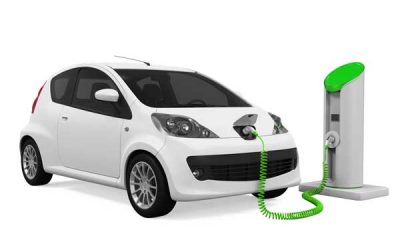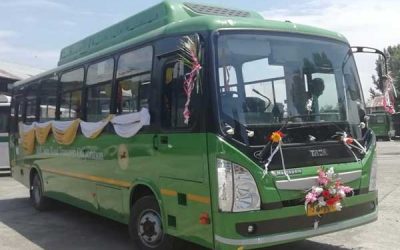Facebook is making yet another attempt for a bigger push into e-commerce. The company has announced the launch of Facebook Shops, an initiative that would enable many small and large businesses to display and sell their products directly to Facebook users across its ecosystem, including Instagram. The initiative will begin rolling out in a phased approach across the world this year. With this Shops launch, the social media giant is trying to capitalize on the massive virtual marketing opportunity to drive user engagement and revenue generation.
Facebook Shops is yet to go live in India, but the company has already been preparing to go into the e-commerce battle by taking aggressive collaboration routes. It has recently announced to invest ₹43,574 crore for a 9.9% stake in Reliance Industries Ltd.’s Jio Platforms, with an aspiration of creating a one-stop digital shop that India has long been waiting for. (See: Will FB–Jio deal create magic?)
In the wake of ongoing Covid-19 crisis, where social distancing and remote working norms are being followed, many SMEs are facing tremendous pressure to survive and reach out to their potential customers. For them, the announcement could come as a boon. For Facebook too, this initiative would be a big chance to resuscitate its e-commerce aspirations that had gone haywire earlier. Its endeavors such as Facebook Marketplace had failed to take off.
“Right now many small businesses are struggling, and with stores closing, more are looking to bring their business online. Our goal is to make shopping seamless and empower anyone from a small business owner to a global brand to use our apps to connect with customers. That’s why we’re launching Facebook Shops and investing in features across our apps that inspire people to shop and make buying and selling online easier,” said Facebook in its official blog.
Will this be as easy as it sounds?
Lessons learned from past
For the beginners, Facebook had launched Marketplace for local buying and selling with much fanfare in 2016. The initiative, however, failed to capture the imagination of its users because of issues such as misleading ads, ineffective filters, and a poor search experience. At that time, Facebook Marketplace was a pure-play effort to increase user engagement and the social media giant had stayed away from facilitating payments or earning commissions from transactions.
The internet giant seems to have learnt some hard lessons from its previous failure. It is now providing businesses an opportunity to set up a full-grown shop for free and is facilitating transactions through payment gateways. It has also bettered its search algorithms. In growing markets like India, this new initiative is expected to get significant eyeballs as many brick-and-mortar shops are struggling to survive and reach their potential customers amidst lockdown and pandemic-induced concerns.
The company seems to have put in lot of efforts for improving search results. It would let users find Facebook Shops on a business’s Facebook Page or Instagram profile, or discover them (Shops) through stories or ads. The company has provisioned businesses to put their entire catalog of products and services, which could be browsed easily by users either on the business’s website or within the app if the checkout has been thus enabled. Facebook would charge a commission in case the checkout happens through the app.
“Just like when you’re in a physical store and need to ask someone for help, in Facebook Shops you’ll be able to message a business through WhatsApp, Messenger or Instagram Direct to ask questions, get support, track deliveries and more. And in the future, you’ll be able to view a business’ shop and make purchases right within a chat in WhatsApp, Messenger or Instagram Direct,” the company said.
The company said it was having partners like Shopify, BigCommerce, WooCommerce, ChannelAdvisor, CedCommerce, Cafe24, Tienda Nube, and Feedonomics to give small businesses the support they needed during these unprecedented times.
Challenges aplenty
While it may look like a game-changing initiative for the social media behemoth, the road is not that easy. Historically, Facebook users have not shown much interest in shopping or responding to ads marketed to them. People don’t use Facebook or Instagram the same way they use Amazon or Flipkart. They primarily look to socialize and share updates with friends and family. Many others just want to play games or read/view trendy information about a celebrity or a hobby say cooking. No wonder, Facebook ads cost less than what other online marketing channels charge.
Many onlookers may feel that since the company now owns three versatile social media channels—Facebook, Instagram, and WhatsApp—it is a reasonable gamble to cash in on the online shopping trend and make a big splash in the market. However, there are many questions that still need to be answered. Will it be able to change the behavioral pattern of its own users, across the globe? Will it be easy to earn their trust and compete with e-marketplace giants like Amazon and Flipkart? In the long run, will users accept the refreshed identity without being wary of protecting their privacy?
In an interaction with Better World, the CISO of a leading professional services company, said that the new features would make Facebook and related social media channels more vulnerable to attacks and that his company would be watchful of the new features. It could also revisit security policies to prevent any unauthorized access to enterprise data. The executive did not wish to be named.
According to Brand Phishing Report for Q4 2019, released by a leading security solution provider, Checkpoint, cyber criminals imitated Facebook the most for phishing attempts to steal individuals’ personal information or payment credentials during October–December 2019. Two years ago, by his own admission, Facebook CEO Mark Zuckerberg acknowledged the security breach that allowed hackers to control Facebook accounts of up to 50 million users. Facebook will need to take stringent measures to assure its users and businesses that their Shops accounts are safe and cannot be compromised.
One does need to remember that Facebook has often failed when it has attempted to replicate a competitor’s features without any reasonable strategy. For instance, in the past, it hasn’t achieved much success by rolling out otherwise popular features such as trending topics, high-profile user verification checkmarks and hashtags.
Facebook also has a reputation of revisiting its marketing and collaboration strategies quite often. Though setting up a shop may look as easy as stealing a candy from a baby, businesses may like to watch before they commit their efforts and monies setting up presence on Facebook Shops.
Going by the history of Facebook and its perseverance for making an impact, it would be too early to label this new initiative a success or a failure. As Facebook Shops rolls out in coming months, the amount of traction it gets from users will be worth watching.














0 Comments